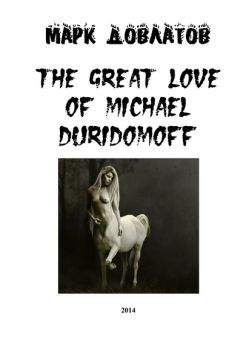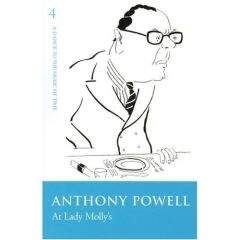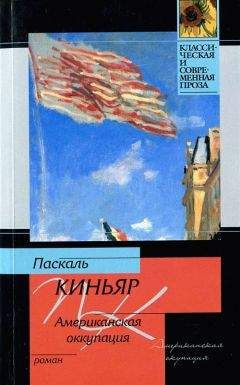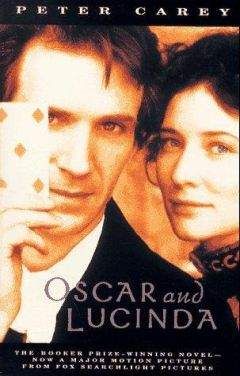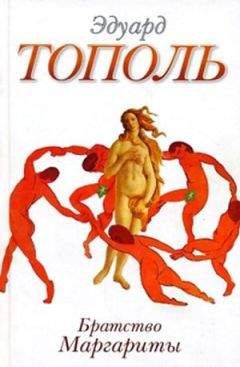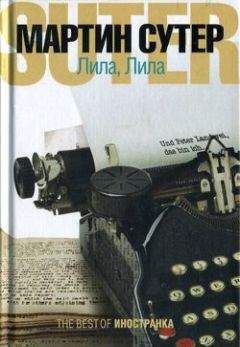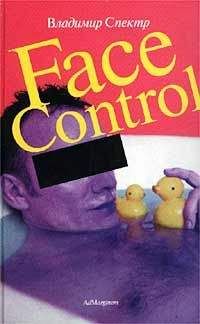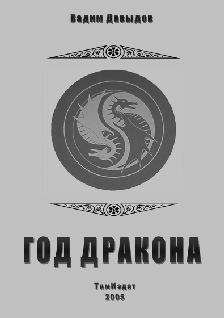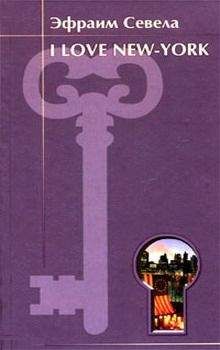Anthony Powell - A Buyers Market
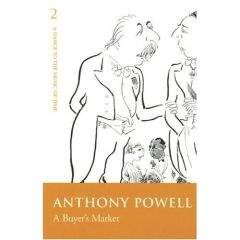
Скачивание начинается... Если скачивание не началось автоматически, пожалуйста нажмите на эту ссылку.
Жалоба
Напишите нам, и мы в срочном порядке примем меры.
Описание книги "A Buyers Market"
Описание и краткое содержание "A Buyers Market" читать бесплатно онлайн.
Anthony Powell's universally acclaimed epic A Dance to the Music of Time offers a matchless panorama of twentieth-century London. Now, for the first time in decades, readers in the United States can read the books of Dance as they were originally published-as twelve individual novels-but with a twenty-first-century twist: they're available only as e-books. The second volume, A Buyer's Market (1952), finds young Nick Jenkins struggling to establish himself in London. Amid the fever of the 1920s, he attends formal dinners and wild parties; makes his first tentative forays into the worlds of art, culture, and bohemian life; and suffers his first disappointments in love. Old friends come and go, but the paths they once shared are rapidly diverging: Stringham is settling into a life of debauchery and drink, Templer is plunging into the world of business, and Widmerpool, though still a figure of out-of-place grotesquerie, remains unbowed, confident in his own importance and eventual success. A Buyer's Market is a striking portrait of the pleasures and anxieties of early adulthood, set against a backdrop of London life and culture at one of its most effervescent moments.
That ponderous tread was also the only faint hint of the side expressed by common gossip, for example, at Sillery’s — where Bill Truscott’s connection with Donners-Brebner made Sir Magnus’s name a relatively familiar one in the twilight world of undergraduate conversation — that is to say, of a kind of stage “profiteer” or “tycoon”: a man of Big Business and professionally strong will. Such, indeed, I had previously pictured him. Now the matter, like so many others, had to be reconsidered. Equally, he showed still less of that aspect called up by the remark once let fall by Stringham: “He is always trying to get in with my mother.” Everything about Sir Magnus seemed far too quiet and correct for any of his elements even to insinuate that there could be in his conduct, or nature, anything that might urge him to push his way into a world where welcome admission might be questionable — even deliberately withheld. Indeed, much later, when I came to hear more about him,’ there could be no doubt that whatever efforts Sir Magnus may have made to ingratiate himself with Mrs. Foxe, through her son, or otherwise — and there was reason to suppose such efforts had in truth been made — must have been accountable to one of those whims to which men of his sort are particularly subject; that is to say, desire to cut a figure somewhere outside the circle familiar to themselves; because Sir Magnus was, after all, in a position, so far as that went, to “go” pretty well anywhere he might happen to wish. The social process he elected to follow was rather like that of mountaineers who chose deliberately the sheer ascent of the cliff face; for it was true I found particular difficulty in associating him with Stringham, or, so far as I knew of them, with Stringham’s family. Widmerpool, on the other hand, though this was by the way, was a victim easily imaginable; no doubt, as I guessed, fated to-be captivated irrevocably at his pending interview by that colourless, respectable, dominating exterior of “the Chief.”
What part Mrs. Wentworth played in Sir Magnus’s life was, of course, a question that at once suggested itself. He was not married. Truscott’s words: “He told Baby Wentworth he would look in — so it’s a virtual certainty,” seemed to imply a fairly firm influence, or attachment, of one kind or another, probably temporary. However, as Sir Magnus and Mrs. Wentworth came through the door, side by side, there was nothing in their outward appearance to denote pleasure in each other’s company. On the contrary, they had entered the room together, both of them, with an almost hang-dog air, and Mrs. Wentworth’s features had lost all the gaiety and animation assumed earlier to charm Prince Theodoric. She now appeared sulky, and, if the word could be used at all of someone so self-possessed, and of such pleasing face and figure, almost awkward. It was rather as if they were walking away together from some excessively embarrassing scene in which they had been taking joint part: some incident for which the two of them felt both equally to blame, and heartily ashamed. I could not help thinking of one of those pictures — neither traditional, nor in Mr. Deacon’s vernacular, but in “modern dress” a pictorial method of treating Biblical subjects then somewhat in vogue — of Adam and Eve leaving the Garden of Eden after the Fall: this impression being so vivid that I almost expected them to be followed through the door by a well-tailored angel, pointing in their direction a flaming sword.
Any such view of them was not only entirely fanciful, but perhaps also without any foundation in fact, because Truscott seemed to regard their bearing as perfectly normal. He came up to them buoyantly, and talked for a minute or two in his accustomed easy style. Mrs. Wentworth lit a cigarette, and, without smiling, watched him, her eyebrows slightly raised. Then she spoke to Sir Magnus, at which he nodded his head heavily several rimes. Perhaps arrangements were-being made for sending her home in his car, because he looked at his watch before saying good night, and asked Truscott some questions. Then Mrs. Wentworth, after giving Sir Magnus little more than a nod, went off with Truscott; who returned a minute or two later, and settled down with his employer on the sofa. They began to talk gravely, looking rather like father and son, though, strangely enough, it might have been Truscott who was playing the paternal role.
By now the crowd had thinned considerably, and the music of the hunchback’s accordion had ceased. I was beginning to feel more than a little exhausted, yet, unable to make up my mind to go home, I wandered rather aimlessly round the house, throughout which the remaining guests were now sitting about in pairs, or larger groups. Chronological sequence of events pertaining to this interlude of the party became afterwards somewhat confused in my head. I can recall a brief conversation with a woman — not pretty, though possessing excellent legs — on the subject of cheese, which she alleged to be unprocurable, at the buffet. Prince Theodoric and Sillery had disappeared, and already there was the impression, given by most parties, sooner or later, that the residue still assembled under Mrs. Andriadis’s roof was gradually, inexorably, sinking to a small band of those hard cases who can never tear themselves away from what still remains, for an hour or so longer, if not of gaiety, then at least some sort of mellow companionship, and protection from the austerities of the outer world.
Two young men strolled by, and I heard one of them say: “Poor Milly really got together quite an elegant crowd to-night.”
The other, who wore an orchid in his button-hole, replied: “I felt that Sillery imparted a faintly bourgeois note — and there were one or two extraordinary figures from the lofts of Chelsea.”
He added that, personally, he proposed to have “one more drink” before leaving, while the other murmured something about an invitation to “bacon and eggs at the Kit-Cat.” They parted company at this, and when the young man with the orchid returned from the bar, he set down his glass near me, and without further introduction, began to discuss, at large, the house’s style of decoration, of which he appeared strongly to disapprove.
“Of course it must have cost a fortune to have had all those carpets cut right up to the walls,” he said. “But why go and spoil everything by these appalling Italianate fittings — and the pictures — my God, the pictures.”
I asked if the house belonged to Mrs. Andriadis.
“Good heavens, no,” he said. “Milly has only taken it for a few months from a man named Duport.”
“Bob Duport?”
“Not an intimate friend of yours, I hope?”
“On the contrary.”
“Because his manners don’t attract me.”
“Nor me.”
“Not that I ever see him these days, but we were at the same college — before he was sent down.”
I commented to the effect that, however unsatisfactory its decoration might be, I found the house an unexpectedly sumptuous place for Duport to inhabit. The young man with the orchid immediately assured me that Duport was not short of money.
“He came into quite a bit,” he said. “And then he is one of those men money likes. He is in the Balkans at the moment — doing well there, too, I have no doubt. He is, I regret to say, that sort of man.”
He sighed,
“Is he married?”
“Rather a nice wife.”
Although I scarcely knew Bob Duport, he had always remained in my mind on account of his having been one of the company when Peter Templer, in a recently purchased car, had driven Stringham and myself into the ditch, together with a couple of shop-girls and another unprepossessing friend of Templer’s called Brent. That episode had been during the single term that Stringham had remained in residence at the university. The incident seemed absurd enough when looked back upon, but I had not greatly liked Duport. Now I felt, for some reason, inexplicably annoyed that he should own a house like this one, however ineptly decorated, and also be the possessor of a wife whom my informant — whose manner suggested absolute infallibility on such matters — regarded as attractive; while I myself, at the same time, lived a comparative hand-to-mouth existence in rooms, in my own case, there had never been any serious prospect of getting married. This seemed, on examination, a contrast from which I came out rather poorly.
Since living in London, I had seen Peter Templer several rimes, but, in the course of an interminable chain of anecdotes about his ever-changing circle of cronies, I could not remember the name of Duport figuring, so that I did not know whether or not the two of them continued to see each other. Peter himself had taken to the city like a duck to water. He now talked unendingly of “cleaning up a packet” and “making a killing”; money, with its multifarious imagery and restrictive mystique, holding a place in his mind only seriously rivalled by preoccupation with the pursuit of women: the latter interest having proportionately increased with opportunity to experiment in a wider field than formerly.
When we had lunched or dined together, the occasions had been enjoyable, although there had hardly been any renewal of the friendship that had existed between us at school. Peter did not frequent the world of dances because — like Stringham — he was bored by their unduly respectable environment.
“At least,” he said once, when discussing the matter, “I don’t go as a habit to the sort of dance you see reported in The Morning Post or The Times. I don’t say I have never attended similar entertainments in some huge and gloomy house in Bayswater or Holland Park — probably Jewish — if I happened to take a fancy to a girl who moves in those circles. There is more fun to be found amongst all that mahogany furniture and Moorish brasswork than you might think.”
In business, at least in a small way, he had begun to “make a bit on his own, and there seemed no reason to disbelieve his account of himself as looked upon in his firm as a promising young man. In fact, it appeared that Peter, so far from becoming the outcast from society prophesied by our housemaster, Le Bas, now showed every sign of being about to prove himself a notable success in life: an outcome that seemed to demand another of those revisions of opinion, made every day more necessary, in relation to such an enormous amount of material, accepted as incontrovertible at an earlier period of practical experience.
Thinking that if the young man with the orchid knew Duport, he might also know Peter, whom I had not by then seen for about a year, I asked if the two of them had ever met.
“I’ve never run across Templer,” he said. “But I’ve heard tell of him. As a matter of fact, I believe Duport married Templer’s sister, didn’t he? What was her name?”
“Jean.”
“That was it. A thin girl with blue eyes. I think they got married abroad — South America or somewhere, was it?”
The sudden awareness of displeasure felt a second earlier at the apparent prosperity of Duport’s general state was nothing to the pang I suffered on hearing this piece of news: the former sense of grievance caused, perhaps, by premonition that worse was to come. I had not, it was true, thought much of Jean Templer for years, having relegated any question of being, as I had once supposed, “in love” with her to a comparatively humble position in memory; indeed, regarding the incident as dating from a time when any such feelings were, in my own eyes, hopelessly immature, in comparison, for example, with sentiments felt for Barbara. However, I now found, rather to my own surprise, deep vexation in the discovery that Jean was the wife of someone so unsympathetic as Bob Duport.
Such emotions, sudden bursts of sexual jealousy that pursue us through life, sometimes without the smallest justification that memory or affection might provide, are like wounds, unknown and quiescent, that suddenly break out to give pain, or at least irritation, at a later season of the year, or in an unfamiliar climate. The party, and the young man with the orchid, supplied perfect setting for an attack of that kind. I was about to return to the subject of Duport, with a view to relieving this sense of annoyance by further unfavourable comment regarding his personality (as it had appeared to me in the past) in the hope that my views would find ready agreement, when I became suddenly aware that Stringham and Mrs. Andriadis were together engaged in vehement argument just beside the place we sat.
“But, sweetie,” Mrs. Andriadis was saying, “you can’t possibly want to go to the Embassy now.”
“But the odd thing is,” said Stringham, speaking slowly and deliberately, “the odd thing is that is just what I do want to do. I want to go to the Embassy at once. Without further delay.”
“But it will be closed.”
“I am rather glad to hear that. I never really liked the Embassy. I shall go somewhere else.”
“But you said it was just the Embassy you wanted to go to.”
“I can’t think why. I really want to go somewhere quite different”
“You really are being too boring for words, Charles.”
“I quite agree,” said Stringham, suddenly changing his tone. “The fact is I am much too boring to stay at a party. That is exactly how I feel myself. Especially one of your parties, Milly — one of your charming, gay, exquisite, unrivalled parties. I cast a gloom over the merry scene. ‘Who is that corpse at the feast?’ people ask, and the reply is ‘Poor old Stringham’.”
“But you wouldn’t feel any better at the Embassy, darling, even if it were open.”
“You are probably right. In fact, I should certainly feel no better at the Embassy. I should feel worse. That is why I am going somewhere much lower than that. Somewhere really frightful.”
“You are being very silly.”
“The Forty-Three would be too stuffy — In all senses — for my present mood.”
“You can’t want to go to the Forty-Three.”
“I repeat that I do not want to go to the Forty-Three. I am at the moment looking into my soul to examine the interesting question of where exactly I do want to go.”
“Wherever it is, I shall come too.”
“As you wish, Milly. As you wish. As a matter of fact I was turning over the possibilities of a visit to Mrs. Fitz.”
“Charles, you are impossible.”
I suppose he had had a good deal to drink, though this was, in a way, beside the point, for I knew from past experience that he could be just as perverse in his behaviour when there had been no question of drinking. If he were a little drunk, apart from making a slight bow, he showed no physical sign of such a condition. Mrs. Andriadis, who was evidently determined to master the situation — and who still, in her own particular style, managed to remain rather dazzling, in spite of being obviously put out by this altercation — turned to one of the men-servants who happened to be passing at that moment, carrying a tray laden with glasses, and said: “Go and get my coat — and be quick about it.”
The man, an old fellow with a blotched face, who had perhaps taken the opportunity to sample the champagne himself more freely than had been wise, stared at her, and, setting down the tray, ambled slowly off. Stringham caught sight of us sitting near-by. He took a step towards me.
Подписывайтесь на наши страницы в социальных сетях.
Будьте в курсе последних книжных новинок, комментируйте, обсуждайте. Мы ждём Вас!
Похожие книги на "A Buyers Market"
Книги похожие на "A Buyers Market" читать онлайн или скачать бесплатно полные версии.
Мы рекомендуем Вам зарегистрироваться либо войти на сайт под своим именем.
Отзывы о "Anthony Powell - A Buyers Market"
Отзывы читателей о книге "A Buyers Market", комментарии и мнения людей о произведении.






